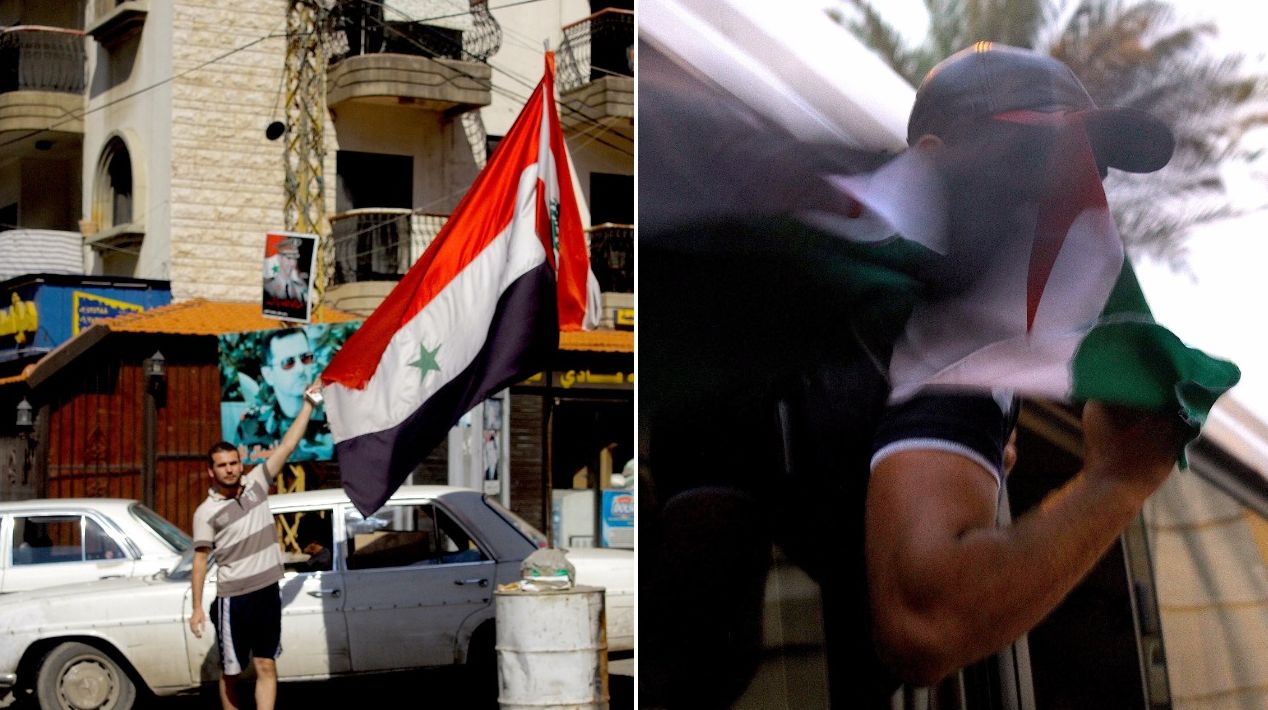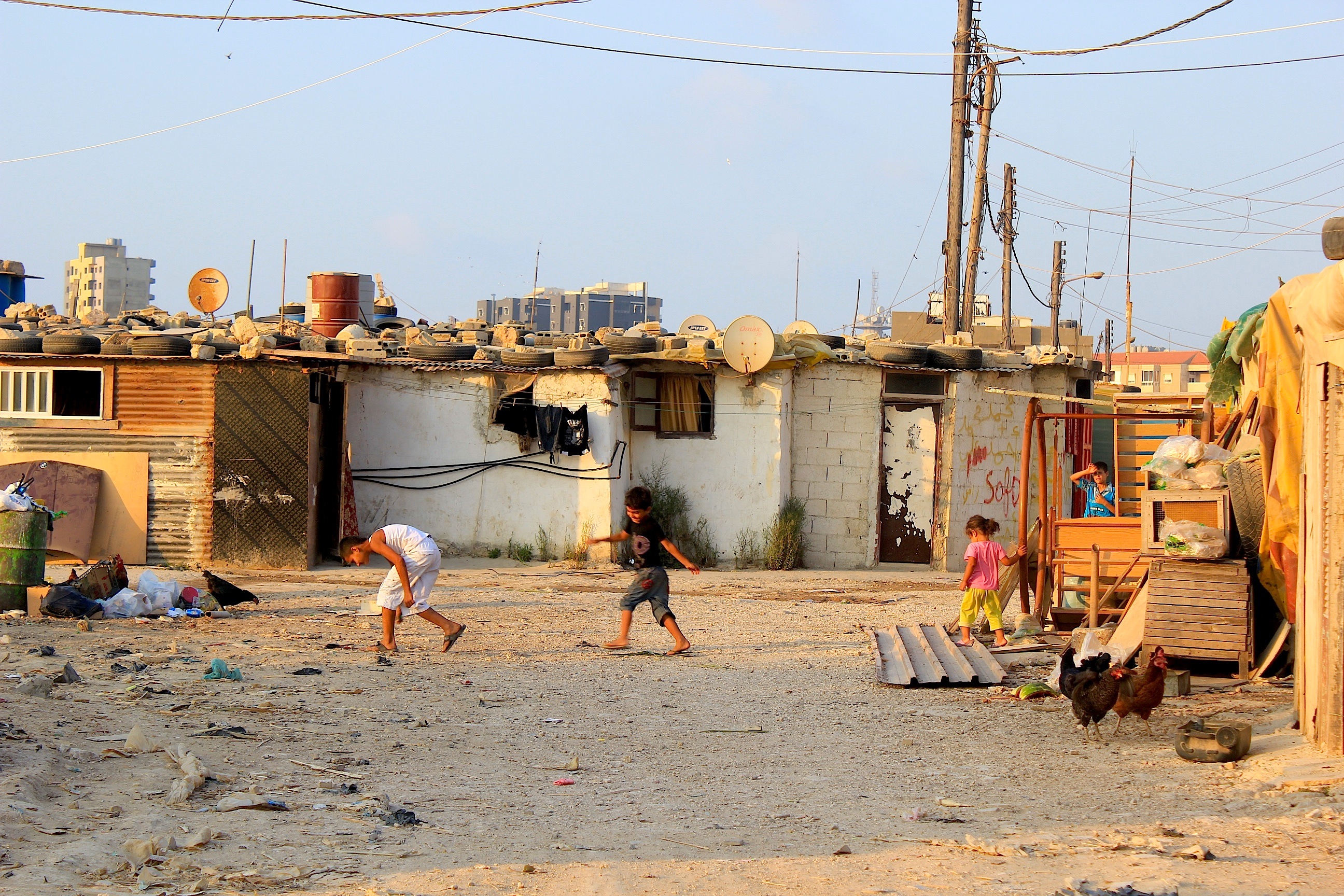One Religion, Two Versions, Deadly Antipathy
"This is a Daesh fighter. We found him in the sewers in Aleppo. He surrendered, and we handed him over to the Syrians."
"I don't know what happened to him but we treat our prisoners with respect. If they [Daesh] caught one of ours, they would have killed him right away."
"If we lose in Syria, we will definitely lose in Lebanon. The war isn't only in Syria. It's here also."
"They're not refugees [Syrian Sunni refugees entering Lebanon for haven]. They're terrorists."
Mohammad, Lebanese Alawite, Jabal Mohsen, Tripoli, Lebanon
"The Syrian crisis has affected the mindset of the people here."
"When the Syrian war started, the people in Jabal Mohsen raised the image of Bashar Assad. We saw this as a provocation because we knew Assad was killing Sunnis. So we started to fight [their Alawite neighbours]."
"The Syrian army besieged one opposition area in Syria. That caused us to do the same to Jabal Mohsen."
Ramzi, Sunni Lebanese, Bab al-Tabbaneh, Tripoli, Lebanon
"The Syrians [refugees in Lebanon] have ruined everything. They do not let us work, because they'll work for much less."
"Each refugee has an iPhone 7. They'll tell you they're poor but they're not."
Yusuf, Sunni Lebanese, Tripoli, Lebanon
 |
| (left) A man proudly displays the Syrian state flag in the neighborhood of Jabal Mohsen. (Preethi Nallu) (right) A protester waves a Free Syrian Army flag on his way to a demonstration in Bab al-Tabaneh. (Preethi Nallu) |
Lebanese Muslims live their lives isolated from one another; the Shiites in their neighbourhood, the Sunnis in theirs and never the twain do meet. Except in combat, now that Syria has collapsed into a divided state itself, with the Sunni terrorist group Islamic State on one hand, the Sunni Syrian rebels on the other, and the Alawite Shiite regime of Bashar al Assad taking up the slack. Taking up the slack with him are his defending sponsors, Russia, Iran (with its al Quds division of the Republican Guard Corps, the Iranian Shiite militias), and Iran's proxy Lebanese terrorist militia Hezbollah.
Mohammad, who lives in the Alawite section of Tripoli, is a fighter with a Lebanese militia dedicated to supporting Syrian President Assad against the Syrian Sunni opposition rebel groups. They cross the border into Syria to cooperate with the regime's military, alongside Hezbollah and the Iranian advisers to Assad. From his neighbourhood alone, Mohammad boasts no fewer than two hundred Alawite Lebanese have fought in Syria for the Syrian government side.
When his militia is not busy fighting in Syria, they turn their attention to doing the same in their very own neighbourhood of Tripoli; even the street next to the one Mohammad lives on is named Syria. Not surprising, since Syria dominated Lebanon for years, as an occupying force. In Lebanon's second largest city the animus between the Islamic sects is as intense and deadly as it is anywhere else in the Middle East. In the divided city, unemployment is high and the presence of tens of thousands of Syrian refugees hasn't helped.
Able-bodied young men hang about, loitering outside the shops, drinking, sweet thick coffee, some of them high on Captagon, an amphetamine popularly used by fighters in Syria. Lebanese soldiers patrol the streets inside armoured personnel carriers mounted with .50 calibre machine guns. The fighting between the two Tripoli neighbourhoods has seen dozens of people die in their newly reawakened hostilities resulting from Syria's civil war.
The government of Lebanon, intimidated and coerced by Hezbollah, is indifferent to its Alawite Lebanese citizens fighting in Syria in support of the Syrian regime. Mohammad's proud recounting of his fighting escapades in Syria bear no consequences. His Sunni adversary Ramzi, on the other hand, is circumspect when and if he alludes to crossing the border to fight against the Syrian regime, for to do so does bear consequences. "If I say 'yes' it's four years in prison", says one resident of Bab al-Tabbaneh. Ramzi discreetly notes that several men of his neighbourhood have fought in Syria with opposition groups, as well as with Islamic State.
 |
| Syrian refugee children play outside a slum complex in Tripoli. (Preethi Nallu) |
Labels: Civil War, Conflict, Lebanon, Refugees, Shiite, Sunni, Syria

<< Home